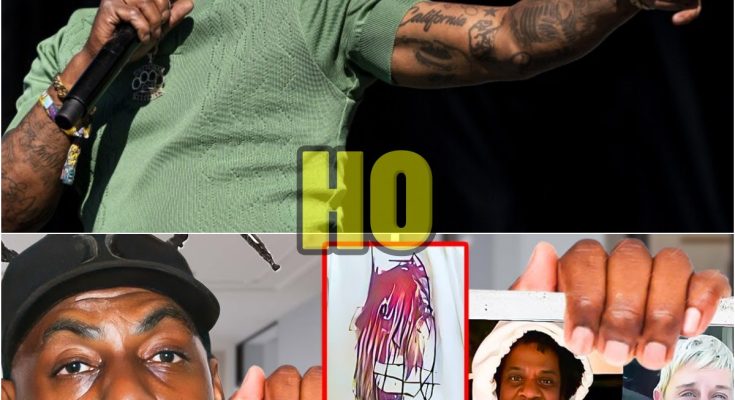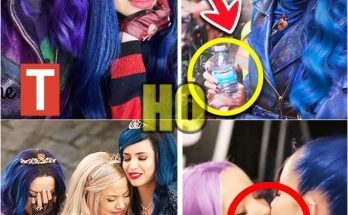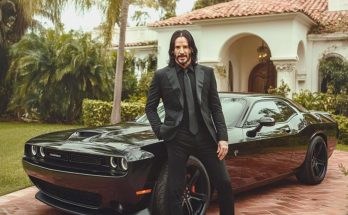Coolio spoke candidly about the “g@y mafia” in hip-hop, a secretive group he alleged used their influence to control careers and silence dissent. He also hinted at something far darker—connections between top entertainment figures and ch!ld t-ff!cking networks.
The unexpected passing of Grammy-winning rapper Coolio at the age of 59 in September 2022 sent shockwaves through the entertainment world. With his rise to fame rooted in the iconic 1995 hit “Gangsta’s Paradise,” Coolio became a household name. However, his sudden death—ruled by authorities as cardiac arrest—left many fans and conspiracy theorists questioning whether there was more to the story.
Newly recovered footage, combined with his increasingly candid revelations, has sparked renewed speculation about the circumstances of his death, especially considering his outspoken comments about the darker forces within the music and entertainment industries.
In the months leading up to his passing, Coolio made several cryptic comments during live streams, interviews, and casual conversations that hinted at an industry far darker and more sinister than most could imagine. He spoke about the so-called “Gay Mafia” in hip hop—a group he claimed used their influence to control artists’ careers, pushing them into compromising situations.
He also alluded to other chilling connections, including those involving child trafficking networks at the highest levels of power within Hollywood. These allegations left many wondering: did Coolio know too much? Was his death an unfortunate consequence of his vocal critiques, or was it orchestrated to silence him forever?
One of Coolio’s most unsettling claims was his assertion that Hollywood’s elite orchestrated a system where artists were offered fame and wealth in exchange for performing acts that compromised their integrity. “Big top hats of the industry were coming at him, asking for things,” Coolio said in one of his last broadcasts.
His refusal to participate in these activities, which he found “inhumane,” led to a series of strange events in his life—events that made him increasingly wary of the powers that be in Hollywood and the music industry. This sense of paranoia was not unfounded, as Coolio often spoke about being approached with dark ultimatums and strange offers, many of which seemed to involve compromising his morals in exchange for career success.

These experiences began to take a toll on Coolio’s life, particularly after an arrest at Los Angeles International Airport. He claimed to have been framed for possession of drugs and a pipe that was found in his bag, something he firmly denied. “I ain’t never did that,” he said, frustrated with the situation.
His insistence on a DNA test to prove his innocence was met with resistance from authorities. Despite his claims of being set up, Coolio was still charged, though later cleared of more severe accusations related to weapon possession. He was eventually sentenced to probation and community service, but the damage to his reputation remained. This experience fueled his belief that the powers in Hollywood were working against him because of his refusal to conform.
In the final months before his death, Coolio’s rhetoric became even more intense. During one particularly revealing live stream, he introduced a segment titled “I’m cool on that,” a phrase that seemed to reflect his growing disdain for society’s indifference to the deeper, darker truths he believed were being hidden from the public.
His comments were aimed at individuals who dismissed the idea of conspiracies or believed that success in the entertainment world was solely due to hard work. Coolio argued that people were turning a blind eye to how the elite truly amassed their wealth and power. “They come at you with a smile,” Coolio said, referring to the powerful individuals in the industry, “but what they want… I’m cool on that.”
His willingness to speak out came with personal risk. Coolio even admitted to fearing for his life, noting that the more he spoke out, the greater the danger became. One of his most chilling remarks came when he said, “I have no fear of death, so it just confirms that what I said was true.” This statement, made in one of his final live-streamed appearances, seemed to eerily foreshadow his untimely death, leaving many to question whether his outspokenness had made him a target of powerful figures in the entertainment industry.
Coolio’s decision to speak about the so-called “gay mafia” in hip hop and Hollywood was not an isolated one. Other artists, like Fat Joe and Lord Jamar, have also suggested that the entertainment industry is controlled by a powerful group of gay individuals, especially in positions of media influence.
According to Fat Joe, the real power in hip hop lies with people behind the scenes—magazine editors, radio executives, and others who determine who gets awards, who gets the big breaks, and who gets pushed out of the spotlight. Lord Jamar, meanwhile, has claimed that these figures are pushing a specific agenda and expect compliance from artists in exchange for success.
In his final months, Coolio seemed to be stepping into a role of whistleblower, sharing insights into the darker corners of the industry that most people either didn’t know about or refused to believe. He spoke about a “gay mafia” controlling much of hip hop, manipulating artists for their own gain.
His statements were bold, and he seemed determined to expose what he had learned throughout his years in the business. However, as he became more vocal about these issues, he also became more fearful for his safety, even acknowledging that his family was at risk because of his outspokenness.
Many fans and conspiracy theorists now believe that Coolio’s death was no accident. His death from cardiac arrest, though officially ruled natural, is viewed by some as a result of the dangerous information he was beginning to expose. The timing of his passing, coupled with his final words about not fearing death, suggests that he knew the risks of his revelations. The fact that he had been receiving threats and was becoming more outspoken in the months before his death adds to the suspicion that his death may not have been just a coincidence.
While Coolio’s official cause of death was cardiac arrest, the circumstances surrounding his passing remain deeply suspicious to many. Was he targeted because of his knowledge and willingness to speak out about the hidden abuses of power within the entertainment industry? Or was his death simply the tragic result of the health issues he was experiencing?
Regardless of the cause, his legacy is now tied to his courage in speaking out against the forces that control the entertainment world—a world that many believe is far darker than anyone could imagine. As more footage and interviews resurface, the mystery surrounding his death continues to fuel speculation, leaving fans to wonder whether Coolio’s final message was one of truth that cost him his life.




